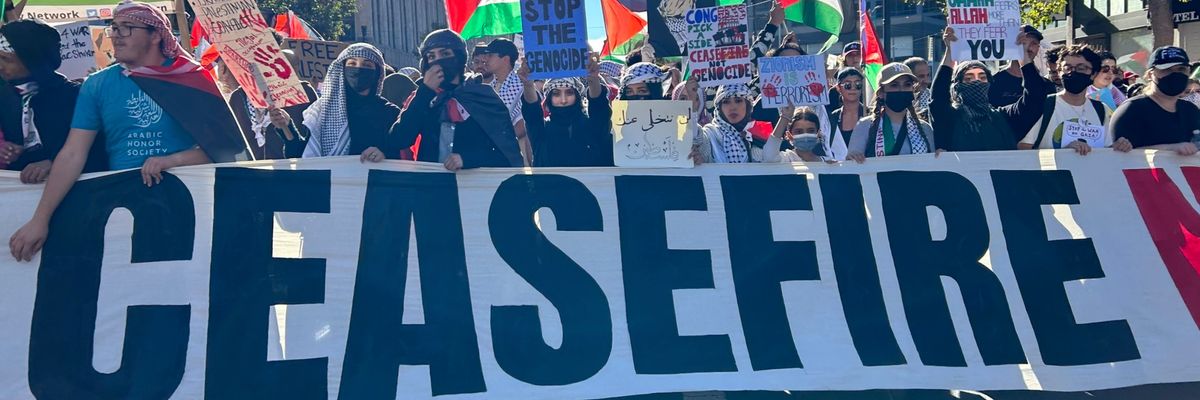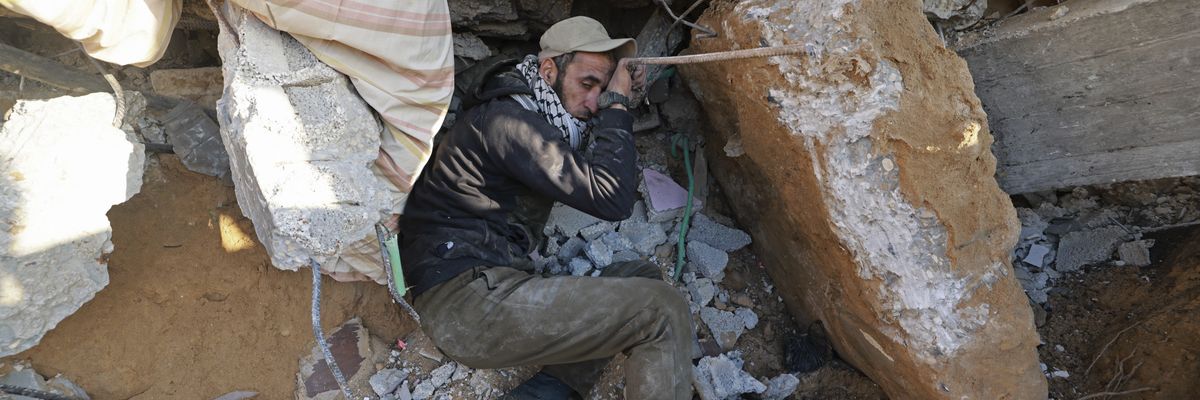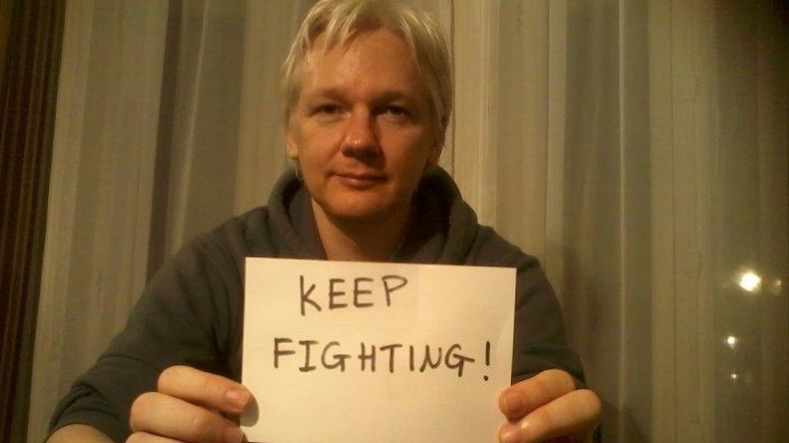Groups Forge Emergency Coalition to Pressure US on Gaza Cease-Fire
Original article by BRETT WILKINS republished from Common Dreams under under Creative Commons (CC BY-NC-ND 3.0).

“It is long past time for the United States to use its leverage and uphold U.S. law to end Israel’s indiscriminate bombardment of Gaza and have this war come to an end.”
A broad coalition of advocacy groups on Tuesday launched an emergency online campaign to pressure U.S. lawmakers to support an immediate and permanent cease-fire in Gaza.
Demand Progress, Oxfam America, the Friends Committee on National Legislation, Win Without War, Common Defense, the Quincy Institute for Responsible Statecraft, and 23 partner groups started CeasefireAction.com, which includes a searchable database of each member of Congress and where they stand on the cease-fire issue, as well as a tool for contacting lawmakers to urge them to publicly support a cease-fire.
“It is long past time for the United States to use its leverage and uphold U.S. law to end Israel’s indiscriminate bombardment of Gaza and have this war come to an end,” said Seth Binder, director of advocacy at the Middle East Democracy Center, a coalition member. “The humanitarian catastrophe that millions of Palestinians are suffering through and its seismic moral and strategic consequences should compel members of Congress to do everything in its power to secure a cessation of hostilities.”
According to the database, 164 of the 536 members of Congress “support some form” of cessation of hostilities in Gaza. All of them are Democrats, plus independent Sens. Angus King (Maine) and Bernie Sanders (Vt.). Seventy-six lawmakers “fully support” a cease-fire.
The launch of CeasefireAction.com comes as Israeli forces continue their relentless bombardment, invasion, and starvation of Gaza’s 2.3 million people, around 90% of whom have been forcibly displaced. According to Palestinian and international humanitarian officials, more than 102,000 Palestinians have been killed or wounded by Israeli bombs and bullets, with at least 7,000 others missing and believed dead and buried beneath the rubble of some of the hundreds of thousands of homes and other buildings destroyed or damaged by Israeli bombardment.
Israel’s conduct in war, along with statements by members of Israeli Prime Minister Benjamin Netanyahu’s far-right government and Knesset lawmakers, are cited in a South Africa-led genocide case filed in the International Court of Justice in The Hague. On January 26, the ICJ issued a preliminary ruling that found Israel is “plausibly” committing genocide and ordered the country’s government to “take all measures within its power” to prevent genocidal acts.
As Israeli forces are poised for a major ground invasion of Rafah, where an estimated 1.5 million Palestinians—the vast majority of them forcibly displaced from other parts of Gaza—are sheltering, “it is more urgent than ever that Congress and the [Biden] administration support an immediate, permanent cease-fire,” said Demand Progress policy adviser Hajar Hammado.
“We need an end to the violence, a release of [Israeli] hostages, and the free flow of humanitarian aid to alleviate the immense scale of suffering,” Hammado added. “This new tool, CeasefireAction.com, empowers constituents to hold their members of Congress accountable for their stances in this critical moment. A temporary, six-week cease-fire is not enough—we need an immediate, permanent cease-fire now.”
The Biden administration—which is seeking an additional $14.3 billion in U.S. military aid for Israel atop the nearly $4 billion it already gets from Washington each year—has pushed for a temporary cease-fire deal ahead of Ramadan in recent days under intensifying pressure from the U.S. public.
Vice President Kamala Harris on Sunday said that “given the immense scale of suffering in Gaza, there must be an immediate cease-fire for at least the next six weeks.”
“People in Gaza are starving,” Harris said. “What we are seeing every day in Gaza is devastating. We have seen reports of families eating leaves and animal feed, children dying from malnutrition and dehydration. Too many innocent Palestinians have been killed.”
Meanwhile, the Biden administration—which twice sidestepped congressional review to expedite weapons transfers to Israel since October 7—is preparing to send thousands more bombs to the country’s military.
Original article by BRETT WILKINS republished from Common Dreams under under Creative Commons (CC BY-NC-ND 3.0).
- Two-Thirds Of US Voters Across Political Spectrum Support Permanent Gaza Cease-Fire ›
- ‘The Time Is Now’: Interfaith Protesters Fill Philly Train Station Demanding Cease-Fire ›
- Union Leaders Join Progressive Lawmakers In Demanding Gaza Cease-Fire Now ›
- Gaza Cease-Fire Now! No Wider War ›
- NYC Workers March For Gaza: ‘Stop The Bombs! Cease-Fire Now!’ ›



